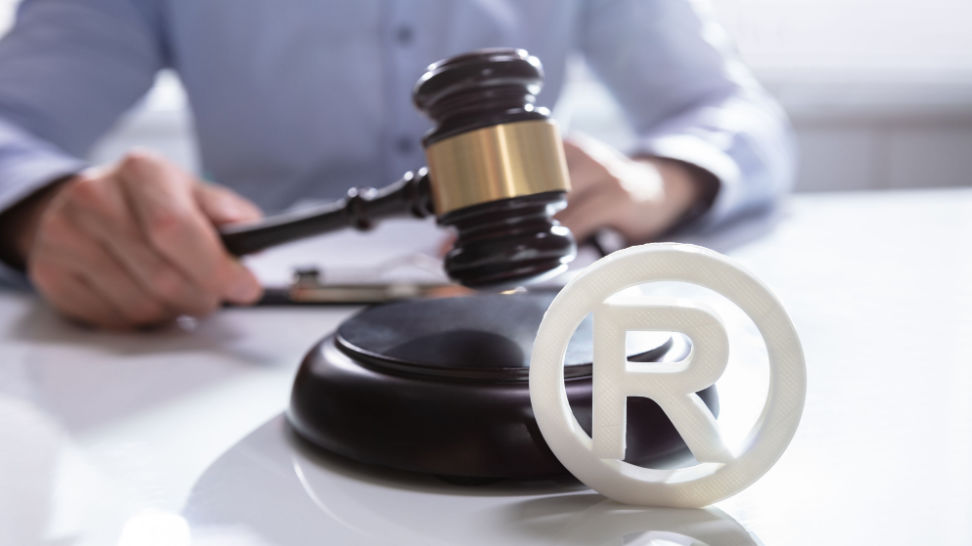When most people think about wealth and assets, they imagine houses, cars, jewelry, savings accounts, and personal devices. However, many individuals and businesses overlook their valuable digital assets, thus increasing their internet-based risks. Digital asset protection is the proactive strategy of securing your financial and intellectual digital assets.
At Blake Harris Law, we work exclusively in asset protection law and understand its complex ins and outs. We want to help you secure your critical digital assets so you don’t compromise your financial goals. Continue reading below to learn everything you need to protect your digital assets.
Digital Asset Protection Defined
Digital assets refer to the online content and valuable information you or your business own. Online business assets may include proprietary processes, customer information, copyrighted material, client lists, cloud-based applications, company logos, and more. As an individual, your assets could include cryptocurrencies, NFTs, monetary accounts, photographs, etc.
Online asset protection is a blanket term for data security. You likely have insurance and different risk management strategies for your largest valuables, like your car and home. You can do the same with digital assets to prevent theft or cover costs related to it.
Many security loopholes and common human errors increase the risk of theft of digital assets. You can reduce risks with protective agreements, two-factor authentication, non-disclosure agreements, cyber insurance, password protection best practices, and other security measures.
Why Is Protecting Digital Assets Important?
Digital assets are just as valuable as physical assets, so you should treat them with the same level of care. Some benefits of obtaining and securing your digital processes or assets include:
- Sales: You can sell any of your company’s assets or individual assets for a financial reward, just like any physical product.
- Investments: Your company’s digital assets also determine its worth in the eyes of investors. People invest more money in more valuable businesses.
- Goodwill establishments: Client or customer lists can help you establish more goodwill.
Aside from the benefits above, you should evaluate your digital assets to avoid tax penalties. Businesses must report all profits as taxable events to the IRS. If you don’t include profits from digital assets, you risk penalties and fines.
The Most Common Digital Assets You Should Protect
Many people fail to protect digital assets because they don’t understand which ones require extra security. Review the list below of the most common digital assets you should protect to understand your critical data better.
Cryptocurrencies
Cryptocurrencies are digital currencies that aren’t maintained or upheld by the government. You can’t walk into any store and buy groceries with your crypto balance. Instead, you can use digital coins to capitalize on gains, curb inflation, and trade with others.
Since you can’t store cryptos in a physically secure location, like a bank, use the recommended best practices for restricting access to the currency.
NFTs
Non-fungible tokens (NFTs) are blockchain cryptocurrency tokens that represent real-world items. NFTs are irreplaceable, unique financial security assets that usually stand for:
- Drawings
- Music
- Artwork
- Videos
- In-game items
- And more
Because these tokens use blockchain technology, you can trade, transfer, and maintain them without a centralized authoritative source. Unlike traditional cryptocurrencies, you can’t trade or exchange NFTs for the same level of value because they represent unique assets.
Software and Games
If you or your company creates software or video games, you can sell the online content to customers. Software and video games are digital assets because you must use your intellectual abilities to create the online application.
Often, you can use cloud storage or a personal hard drive to manage your software system. Cloud-stored software increases the risk of unauthorized access, so it helps protect your company’s digital assets using risk management strategies like user authentication.
Website and Online Contents
Your website is a living document with rich data and information you regularly update. Critical data on your website includes your company’s logo, text, images, domain name, blog content, and other unique or valuable information.
Your company owns all of the writing, data, and visuals on its website, so you should protect these assets from plagiarism and other forms of theft. For example, if your marketing employees created a graphic on your home page, you wouldn’t want another company to copy and paste it onto their site for free.
E-books and Intellectual Property
E-books are digital assets like novels, guides, how-to manuals, etc. Selling e-books is like any other business property, though you want to combat illegal downloads. Customers may attempt to access the data without paying, which is unlawful and unfair to you.
To protect the value of your created content, follow the best practices for data security. Aside from e-books, businesses should protect any other online intellectual properties. Intellectual property might include:
- Digital artwork
- Photographs
- Patents
- Illustrations
- Product images
- Marketing graphics
- Videos
- And other innovations
Online and Social Media Accounts
Social media used to be little more than a fun way to share memories with friends; today, it’s also a powerful business asset. Social media accounts with large followings receive payments from the platform and advertisement deals. A security breach could result in losing followers, reputation slander, and missed payments.
Your company’s digital assets on social media also include all posts, images, and shared content. For example, if you tweet a few sentences with a graphic your employees created, you wouldn’t want another company to capitalize on this valuable insight.
Aside from social media, you may have other online accounts that your company pays for, like various software assets. Protecting your online assets prevents people from stealing the data that you pay to use.
Your Company’s Digital Assets and Online Business Processes
Your company’s digital assets and online business processes are similar to proprietary software and games. Even if you don’t list these assets for sale, someone could steal and profit from your system processes, especially if you keep the data stored in the cloud. An example could be your company’s IVR (interactive voice response) system or content management data.
Other Digital Assets
Many other forms of digital assets exist, so it’s important to consider all possible data security risks. Your digital assets may include:
- Customer lists
- Business data and documents
- Email and contact lists
- Spreadsheets
- Information regarding clients or employees
How To Protect Your Digital Assets
You likely own some of the items above, so how do you protect your company’s digital assets or personal online property? Follow our data security steps below to secure your data and prevent unauthorized access or usage events.
1: Take Inventory
First, understand which digital assets you or your business control. We recommend taking inventory of all company data or valuable information, including items on social media platforms, private files, public websites, or the cloud. Use our list above so you don’t forget any of your digital assets.
2: Establish Ownership
To protect digital assets, establish your ownership and each item’s value. Our asset protection attorneys can help you manage your inventory and determine which digital products require proof of ownership.
Determine the current value of your digital assets to create a baseline. When determining value, remember that the costs may fluctuate over time. If you don’t know how much your data is worth, consider seeking help from a business appraiser.
Include the associated value and ownership documents for all items on your inventory list from step one.
3: Add Trademarks or Copyrights
For many digital assets, you may need to establish ownership. You can officially register different intellectual properties with copyrights or trademarks.
- Copyrights: Your business can copyright most online content, including website designs, blog post texts, service page contents, artwork, imagery, photographs, videos, and more.
- Trademarks: You can apply for and register a business trademark through the United States Patent and Trademark Office. The trademark application can include various items, like your business’s domain name, slogan, and more.
Protecting digital assets through copyrights and trademarks is critical because it gives you legal authority over your business assets. If you need help registering ownership, contact our team for help from an experienced asset protection lawyer. We can help your business complete all the necessary paperwork and applications.
4: Limit Access and Follow a Good Security Protocol
You can secure your private company data by limiting access to specific users, like your employees. We recommend requiring passwords or an extra layer of authentication steps to reduce risks.
Users should exercise extreme caution when accessing business information. For example, if one of your team members opens your business cloud data from a personal device with weaker security measures, they could accidentally expose the information.
5: Use NDAs
Non-disclosure agreements (NDAs) are legal confidentiality commitments in writing. You should require all employees, clients, or other business users to sign NDAs, agreeing that they won’t share your company’s information with others.
Always author NDAs with care. You need to include all the necessary agreements to adequately secure your digital assets. Our asset protection attorneys can help you create sound legal documents that protect the value of your business.
6: Secure Your Network
Hackers steal online cloud information by breaking into your network or security system. Keeping your operating systems and cloud-based networks up to date makes it harder for hackers to find loopholes or entry points. We recommend taking advantage of all online security features, like two-factor authentication.
To keep your Wi-Fi network secure, regularly change the password, use a firewall, and consistently check for updates. Take advantage of the data encrypting feature if your router offers it.
7: Train Your Team
Your employees play just as big a role in protecting your digital assets as you do. Aside from requiring them to sign NDAs, you should teach them the best practices for keeping information secure.
For example, ensure that employees never access cloud information from their personal devices or external Wi-Fi routers. If your network has ample security, you don’t want your team accessing critical information from unsecured locations.
8: Create a Plan
Protecting your assets means securing them against future security breaches. For example, you can purchase cyber insurance on your valuable business assets, so you won’t suffer a total loss if something happens. Typically, insurers cover the cost of any losses and related investigative expenses.
Include new policies in your company’s framework for consistent future practices. For example, when taking inventory of digital assets, you should schedule a date every quarter to update each item’s value or add any new ones.
We recommend regularly revisiting your digital asset plan and schedule in case of new technology updates. You may want to upgrade to a more secure network once your provider releases the option.
Asset Protection for Cryptocurrencies and NFTs
Protecting cryptocurrencies and NFTs from hackers or other online theft events is challenging. Often, the people attempting to steal this information have ample knowledge of and experience breaking into secure systems.
If you have hundreds of thousands or more invested in cryptos, you should seek professional help to secure these finances. The more funds you invest value you carry in cryptocurrencies or NFTs, the more risks you face. We recommend speaking with one of our asset security lawyers at Blake Harris Law to discuss your options.
How Can a Digital Asset Protection Attorney Help You?
As technologies advance, so do your needs for digital security. Understanding all the legalities surrounding online assets and cloud products is complex.
Our knowledgeable digital asset protection attorneys at Blake Harris Law have ample experience securing valuable online assets. We can analyze your needs, create a plan, and complete all the necessary legal documents. We serve clients throughout the world.
Contact Blake Harris Law today to learn more about how we can help you protect your wealth.





